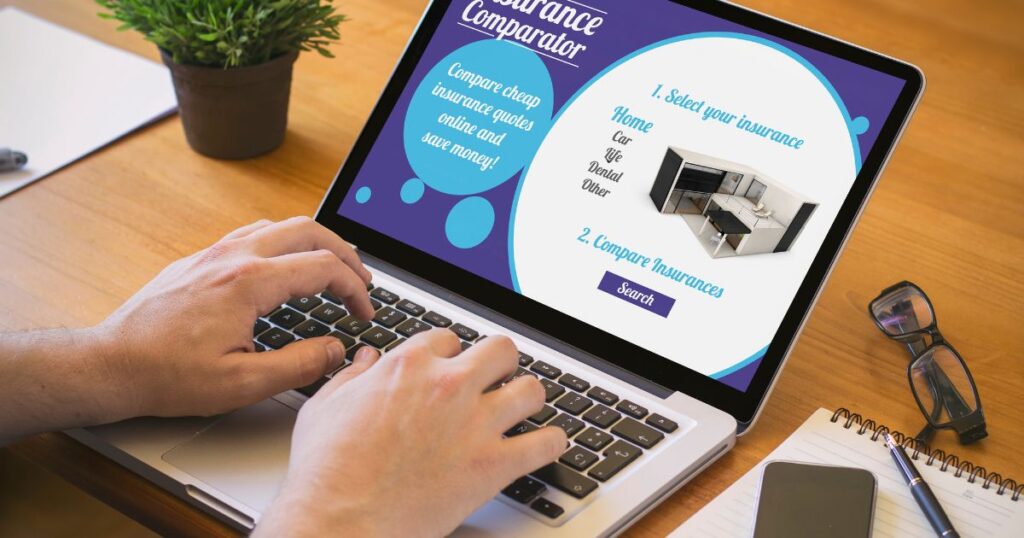Introduction:
Car insurance is crucial to responsible car ownership, providing financial protection against accidents, theft, and other unforeseen events. However, finding a suitable auto insurance policy at a reasonable cost can be challenging. With numerous insurance companies and procedures available, comparing car insurance quotes is essential to ensure you get the best deal. In this article, we’ll guide you through comparing car insurance quotes like a pro, helping you make an informed decision and save money without compromising coverage.
Understand Your Coverage Needs:
Before you start comparing car insurance quotes, it’s essential to understand your coverage needs. Assess factors such as your vehicle’s value, driving habits, and personal preferences for coverage options. Determine whether you need basic liability coverage or additional coverage options like comprehensive and collision coverage, uninsured/underinsured motorist coverage, or roadside assistance. A clear understanding of your coverage requirements will help you make accurate comparisons.
Gather Necessary Information:
To compare car insurance quotes accurately, gather all the necessary information beforehand. You’ll typically need details such as your driver’s license number, vehicle identification number (VIN), details of any past accidents or violations, and the coverage limits you’re seeking. This readily available information will streamline the quoting process and provide insurers with the necessary data to generate accurate quotes.
Start with Online Comparison Tools:
Online comparison tools are a great starting point for comparing car insurance quotes. You only need to submit your data once to compare quotations from different insurers using these tools. They make it easier by displaying premiums and coverage alternatives side by side. To ensure the online quotations are accurate and reliable, it’s important to use only respected comparison websites.
Consider Multiple Insurance Companies:
Make sure to expand yourself to more than one insurance company. Consider multiple insurers to view the market and available options comprehensively. Look for both large, well-known insurance companies and smaller, regional insurers. Each company may have different rates and unique discounts, so exploring multiple options will increase your chances of finding the best deal.
Review Coverage Options:
As you receive quotes from different insurance companies, carefully review the coverage options provided. Ensure that the policies you’re comparing offer similar levels of coverage and deductibles. Pay attention to details like liability limits, comprehensive and collision coverage limits, and additional endorsements or add-ons. Remember that the cheapest quotation isn’t usually the best, so you’ll want to find a happy medium between the two.
Check for Discounts:
Insurance companies offer various discounts that can significantly lower your premium costs. Look for deals such as safe driver discounts, multi-policy discounts (bundling your auto insurance with other policies), good student discounts, low-mileage discounts, or discounts for specific safety features installed in your vehicle. Check if you qualify for these discounts and factor them into your comparison.
Examine Customer Satisfaction Ratings:
The insurance company’s reputation and quality of service to customers are just as significant as the premiums they charge. Review customer satisfaction ratings and read reviews from current or former policyholders. Look for indicators of responsive customer service, efficient claims handling, and overall customer satisfaction. Choosing an insurer with a positive track record in these areas can provide peace of mind and a hassle-free experience in the event of a claim.
Assess Financial Stability:
When evaluating auto insurance quotes, a company’s financial health is crucial. An insurance company’s financial strength indicates its ability to pay claims promptly and handle its financial obligations. Look for independent rating agencies like A.M. Best, Moody’s, or Standard & Poor’s to assess the financial stability of the insurance companies you’re considering. Opting for a financially stable insurer reduces the risk of potential future issues.
Contact Insurance Agents Directly:
While online comparison tools are convenient, feel free to contact insurance agents directly for personalized quotes and assistance. Speaking with an agent allows you to ask specific questions, clarify doubts, and explore additional coverage options that may not be readily available through online tools. Agents can also help you identify potential discounts or provide guidance tailored to your unique circumstances.
Review and Compare Quotes Carefully:
Once you’ve gathered quotes from multiple insurers, take the time to review and compare them carefully. Pay attention to the premium costs, coverage limits, deductibles, and additional terms and conditions. Consider your overall value for the price and how well each quote aligns with your coverage needs. Choose the quote that provides the best coverage, price, and customer happiness rather than just focusing on pricing.
Conclusion:
Comparing car insurance quotes is vital in finding the best deal and ensuring adequate coverage for your vehicle. You can make informed decisions by understanding your coverage needs, utilizing online comparison tools, considering multiple insurers, reviewing coverage options, and assessing discounts, customer satisfaction, and financial stability. Remember, the cheapest quote isn’t always the best option if it doesn’t provide the coverage and service you require. With the right approach, you can compare car insurance quotes like a pro and secure a policy that meets your needs while fitting your budget.
Visit our website NewAutoInsurance.com to learn more.


